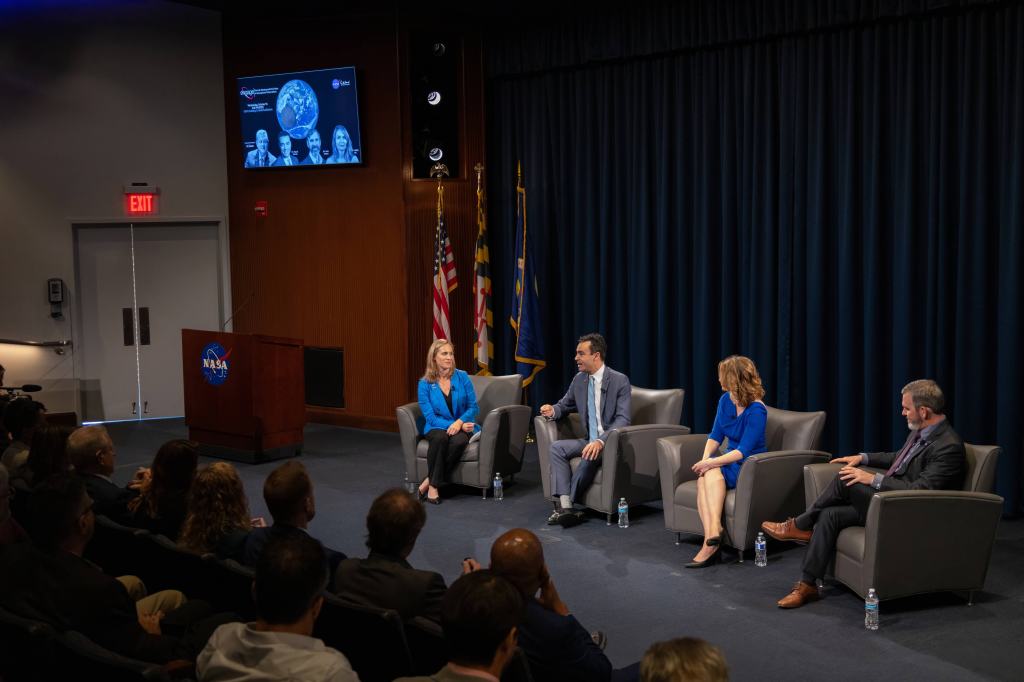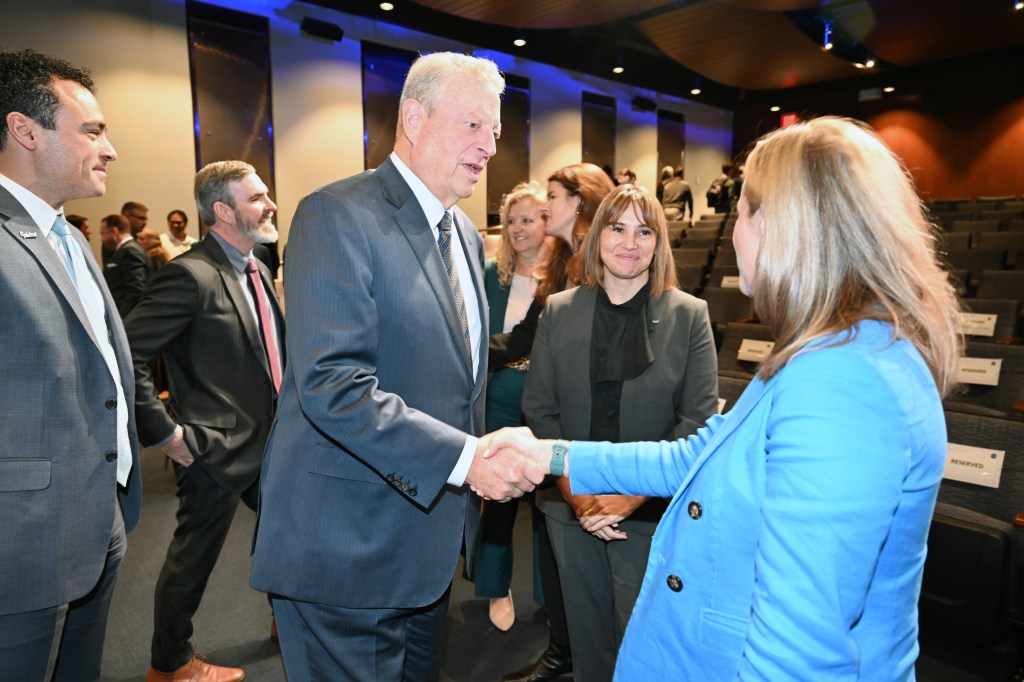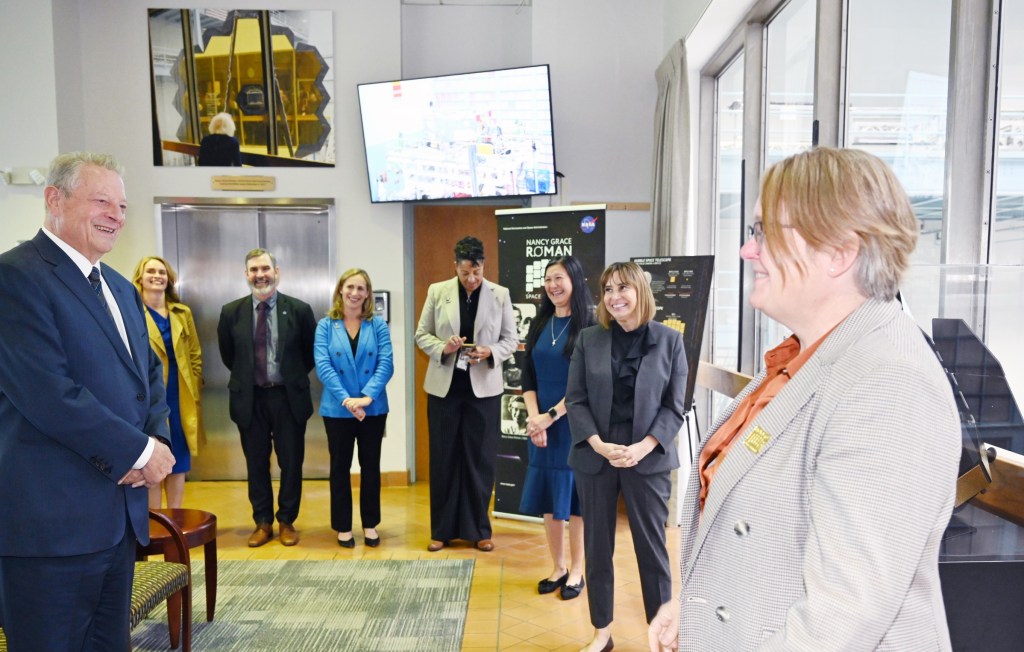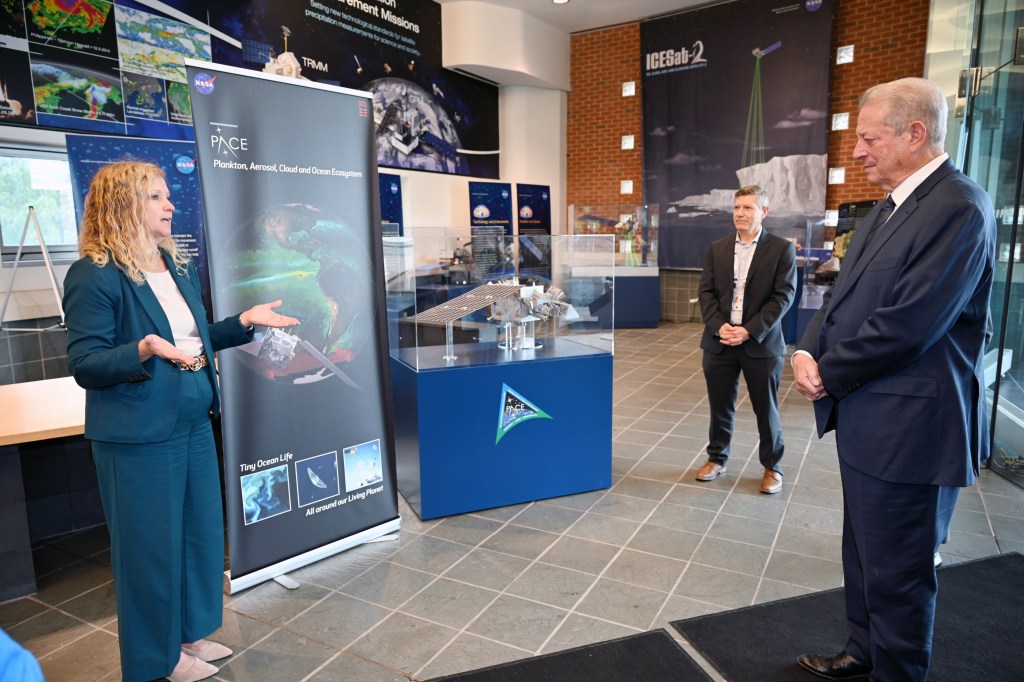Environmentalist and former Vice President Al Gore visited NASA's Goddard Space Flight Center in Greenbelt, Maryland, on Oct. 16, 2024, to commemorate the upcoming 10th anniversary of the DSCOVR (Deep Space Climate Observatory) mission.
"The image of our Earth from space is the single most compelling iconic image that any of us have ever seen," Gore said at a panel discussion for employees. "Now we have, thanks to DSCOVR, 50,000 'Blue Marble' photographs … To date there are more than 100 peer-reviewed scientific publications that are based on the unique science gathered at the L1 point by DSCOVR. For all of the scientists who are here and those on the teams that are represented here, I want to say congratulations and thank you."





Following Gore's talk on climate monitoring, Goddard scientists participated in a panel discussion, "Remote Sensing and the Future of Earth Observations," which explored the latest advancements in technology that allow for the monitoring of the atmosphere from space and showcased how Goddard's research drives the future of Earth science.
Gore's visit also entailed a meeting with the DSCOVR science team, a view into the clean room where Goddard is assembling the Roman Space Telescope, and a stop at the control center for PACE: NASA's Plankton, Aerosol, Cloud, ocean Ecosystem mission.
Launched Feb. 11, 2015, DSCOVR is a space weather station that monitors changes in the solar wind, providing space weather alerts and forecasts for geomagnetic storms that could disrupt power grids, satellites, telecommunications, aviation and GPS.
DSCOVR is a joint mission among NASA, the National Oceanic and Atmospheric Administration (NOAA), and the U.S. Air Force. The project originally was called Triana, a mission conceived of by Gore in 1998 during his vice presidency.






